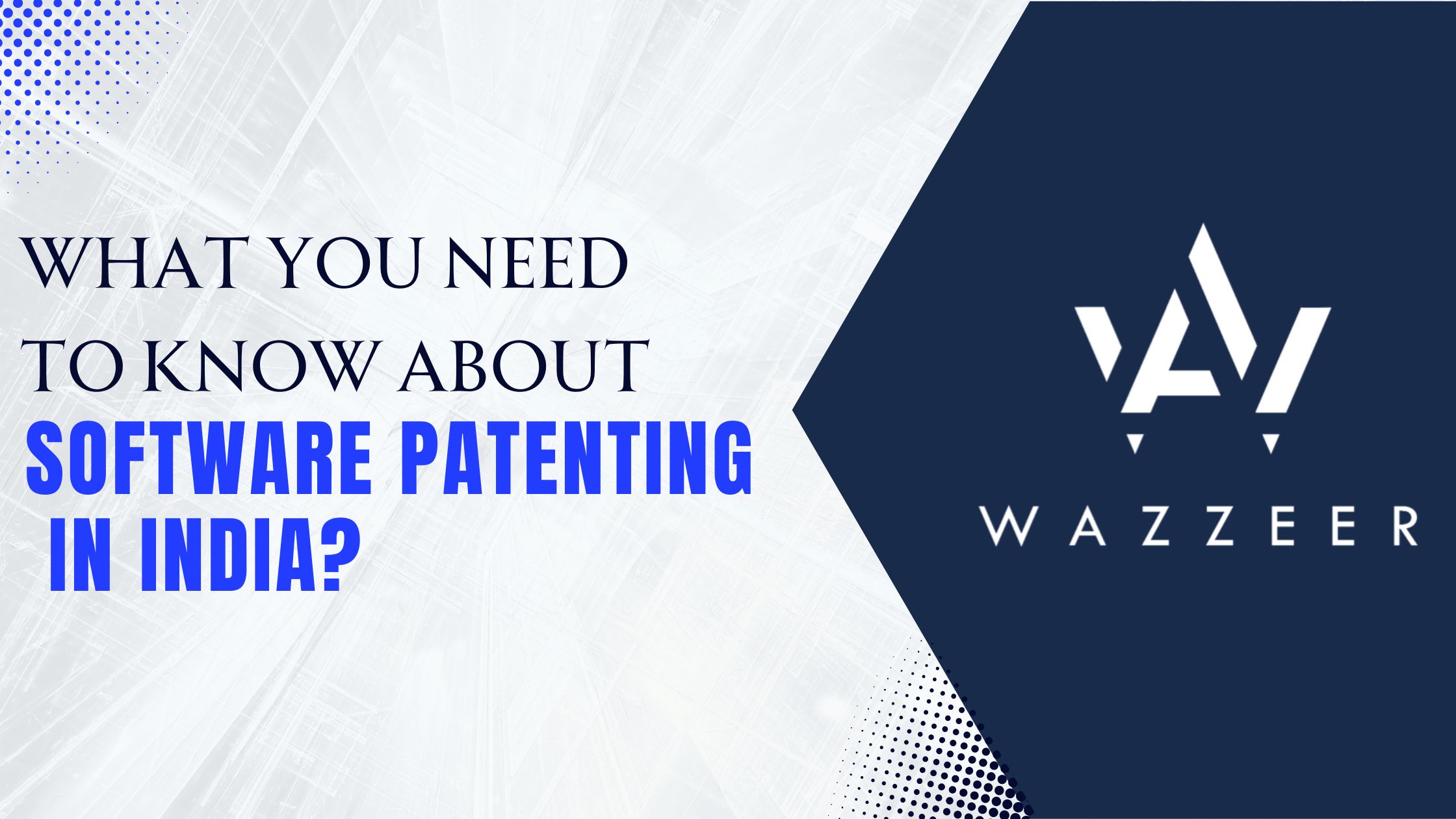In the ever-evolving landscape of technology, innovation stands as the cornerstone for progress. Protecting intellectual property is crucial, and one significant avenue for safeguarding software innovations is through patents. In India, the legal framework for software patenting has undergone transformations, offering new possibilities for businesses. In this blog, we’ll explore the intricacies of software patenting in India and how Wazzeer, a pioneer in legal, accounting, and compliance services, can assist businesses in navigating this complex terrain.
Understanding Software Patenting in India:
Software patents grant inventors exclusive rights to their creations, providing a legal framework to protect their innovations. In India, software, being intangible and often considered a mathematical algorithm, historically faced challenges in acquiring patent protection. However, with advancements in technology and legal interpretations, the scope for software patenting has expanded.
Recent Legal Developments:
The watershed moment for software patenting in India came with the landmark decision in the case of Ferid Allani v. Union of India in 2014. The Supreme Court clarified that patents could be granted for software inventions under the Patents Act, 1970, if they demonstrated a technical effect or contributed to a technical advancement.
This clarification opened new avenues for software developers and businesses to seek patent protection for their innovative solutions. Wazzeer, with its expertise in legal matters, can guide businesses through the intricate process of preparing and filing patent applications, ensuring compliance with the latest legal standards.
Advantages of Software Patenting:
Market Exclusivity:
Software patents provide a competitive edge by granting exclusive rights to the inventor, allowing them to capitalize on their innovation without fear of infringement.
Attracting Investors:
Patented software solutions often attract investors and partnerships, as they represent a secure investment with protected intellectual property.
Monetization:
Patents can be licensed or sold, offering businesses additional revenue streams and opportunities to capitalize on their intellectual property.
Legal Protection:
Having a patented software invention acts as a deterrent against potential infringers and provides a legal recourse in case of unauthorized use.
Wazzeer’s Role in Software Patenting:
Navigating the complexities of software patenting requires expertise in both legal and technological domains. Wazzeer, with its team of experienced professionals, offers comprehensive support throughout the patenting process:
Legal Consultation:
Wazzeer provides businesses with expert legal consultation to assess the patentability of their software inventions, ensuring compliance with the latest legal standards.
Documentation and Drafting:
Crafting a strong patent application is crucial. Wazzeer assists businesses in preparing detailed and precise patent specifications, highlighting the technical aspects of the software innovation.
Filing and Prosecution:
The patent application process involves multiple steps, including filing, examination, and prosecution. Wazzeer guides businesses through each stage, ensuring a smooth and efficient process.
Enforcement and Litigation Support:
In case of potential infringement, Wazzeer offers support in enforcing patent rights and, if necessary, represents businesses in litigation proceedings.
In conclusion, Software patenting in India has evolved, presenting new opportunities for businesses to protect their innovative solutions. Wazzeer, as a leading platform for legal, accounting, and compliance services, plays a pivotal role in assisting businesses in navigating the intricate landscape of software patenting in India. By leveraging Wazzeer’s expertise, businesses can unlock the full potential of their software innovations, secure their competitive advantage, and contribute to the vibrant landscape of technological advancement in India.
